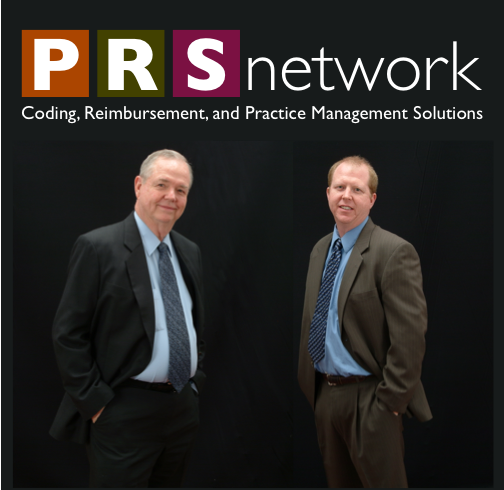With a new Medicare audit program set for national rollout, urologists should keep the old W.C. Fields quote in mind: “Trust everyone, but cut the cards.” The program will require you to begin thinking in a different, somewhat defensive way about coding and billing. Learn the details of current rules, be aggressive in charging for all services according to the rules, and be prepared to pay back some money in the future for any overpayment. There is no penalty and no interest charged when you are asked to pay the money back.
We have always maintained that the fact that you have been paid doesn’t mean that you were paid correctly. If your request for payment meets the criteria for payment, as programmed into the payer’s computer, you will almost always be paid, without any question. However, Medicare and private payers reserve the right to audit your documentation at any time in the future and ask for their money back if they disagree with the payment.
Medicare insists on paying exactly the contracted amount for medically necessary, properly documented covered services. The Centers for Medicare & Medicaid Services has page after page of regulations detailing coverage issues and circumstances under which services are covered. These regulations change yearly.
The Medicare Prescription Drug, Improvement and Modernization Act of 2003 (Section 306) directs the Secretary of the U.S. Department of Health and Human Services to demonstrate the use of Recovery Audit Contracts (RAC) under the Medicare Integrity Program to identify underpayments and overpayments and recoup overpayments under the Medicare program for services for which payment is made under Part A or Part B of Title XVIII of the Social Security Act.
When we refer to overpayment, we are not talking about intentional fraud. We are referring to overpayment due to a difference in interpretation of the rules, a mistake in payment by the payer, a wrong code for the service, etc.
Implementation of RAC
The program started as an experiment in California, New York, and Florida, in which RAC companies were hired to find payments made by the Medicare carrier that should not have been made. RAC payments are made based on percentage of identified and corrected payments. The payer makes final determinations of all corrections to payment. These companies collected $371.5 million from improper Medicare payments in 2007. Based on the success of the program, Congress voted to maintain the law, which allows expansion of the program to all 50 states by 2010.
CMS has divided the country into four RAC jurisdictions, each identified by its own letter (see map). Implementation dates for the program vary within these jurisdictions. There is a blackout date for all RAC activity during the MAC transition. The additional states to be implemented first are those in which the MAC contracts have been let and are being implemented.
The RAC is a program that hires what amounts to a “bounty hunter” to find any overpayments and underpayments that have been made on behalf of the Medicare program. These contractors are using benchmarking data to determine where there might be an overpayment or underpayment. All identified potential payment errors then must be evaluated by review of documentation. Once confirmed by review, the results are presented to the Medicare carrier, who is responsible for collecting or refunding the money identified by the RAC. Physicians are provided the opportunity to protest findings.
RACs are authorized to review payments for the previous 4 years. The software they use is more capable of picking up overpayments than it is underpayments. This discrepancy is borne out by a CMS report showing that 97% of improper payments in fiscal year 2006 were overpayments, and only 3% were underpayments. No money has been reported as having been returned to physicians because of underpayment.
At this point, the RACs are going after the low-hanging fruit. Ninety-four percent of the money collected so far has been from hospitals and durable medical equipment companies, leaving only 6% collected from physicians. However, RACs identified overpayments for LHRH injections in California and were seeking millions of dollars from physicians.
Fortunately, working under direction of the California Urological Association and Jeff Kaufman, MD, the physicians and AUA (with some assistance from PRS) were successful in challenging the request for refunds. They were successful in part because many of the identified overpayments were beyond the 4 years allowed under the RAC contract. Despite this setback, the RACs continue to search data for other “incorrect” payments, and physician payments will be increasingly scrutinized.
One of the issues that we are concerned about is the consult, and the fact that the Office of Inspector General has alleged that CMS has overpaid physicians millions of dollars in consults. The OIG has also suggested a different interpretation of a consult than was previously understood to be the interpretation of medical carriers and directors. If the OIG has determined that the consult should be revisited using a more strict interpretation of referral, then physicians could be asked to pay money, even though they thought they were adhering to current guidelines.
The other issue that concerns us is that private payers are hiring these same companies to search for “overpayments” in the private sector.
Unfortunately, the bottom line is that urologists have to consider, in everything they do, the possibility that a payment determination could be reversed at a later date. If Medicare determines that it was not appropriate to pay for a given service, for any reason, physicians have to pay. As frightening as this is, it is important to remember that billing accurately for services requires that documentation supports the codes charged. There is no guarantee that you will not one day be contacted by a RAC, so continue to bill accurately, and not through fear.
Urologist Ray Painter, MD, is president of Physician Reimbursement Systems, Inc., in Denver and is also publisher of Urology Coding and Reimbursement Sourcebook
Mark Painter is CEO of PRS Urology SC in Denver.



